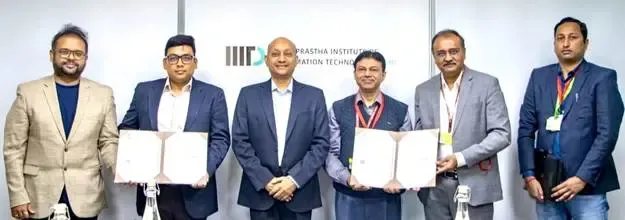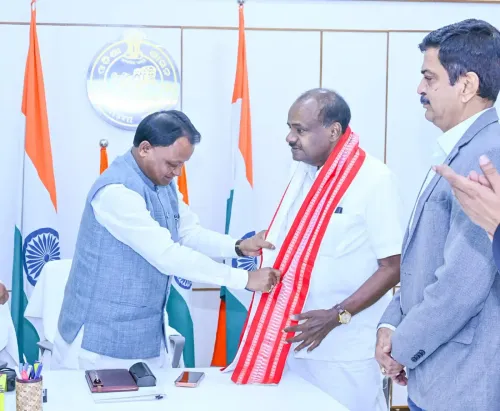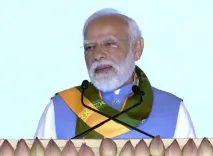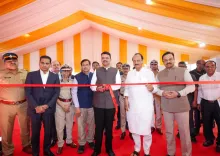How are TEC and IIIT-Delhi Collaborating to Enhance R&D and Standardization in Advanced Telecom Technologies?

Synopsis
Key Takeaways
- Collaboration between TEC and IIIT-Delhi to enhance telecom technology research.
- Focus on AI-driven solutions and future technologies like 6G.
- Development of India-specific standards for telecom.
- Strengthening India's role in global standardization initiatives.
- Support for the Atmanirbhar Bharat vision through local innovation.
New Delhi, Nov 19 (NationPress) The Telecommunication Engineering Centre (TEC) announced a partnership with the Indraprastha Institute of Information Technology, Delhi (IIIT Delhi) through a signed memorandum of understanding (MoU) aimed at fostering collaboration in joint research, studies, and technical contributions in the realm of advanced telecom technologies and global standardization efforts.
This strategic alliance is focused on developing standards and test frameworks tailored for India, engaging in collaborative research within the telecom sector and related ICT fields, as well as investigating future network technologies such as 6G, Optical Communication, and Non-Terrestrial Networks (NTNs). The goal is to enhance India's role in the ITU-T (International Telecommunication Union–Telecommunication Standardization Sector) study groups via National Working Groups.
The partnership spans various advanced technology areas, including AI-driven telecom solutions like network optimization, anomaly detection, predictive maintenance, intelligent traffic management, and policy enforcement.
Both organizations will also collaborate on standardization initiatives for emerging wireless technologies such as 5G, 6G, mmWave, mMIMO, and heterogeneous networks.
Furthermore, the collaboration will involve joint studies in Software Defined Networking (SDN) and Network Function Virtualization (NFV) to bolster next-generation network architectures.
They will contribute to standardization activities in Free Space Optical Communication and Li-Fi technologies, aimed at achieving high-speed, low-latency, secure optical wireless connectivity for backhaul and access, especially in rural and defense contexts.
This partnership also aims to accelerate local R&D and amplify India's influence in global standardization processes by enhancing the country's contributions to international bodies such as ITU and 3GPP.
Ultimately, this collaboration will promote the Atmanirbhar Bharat vision by fortifying local research, design, and manufacturing in telecom, creating India-specific standards, test frameworks, and homegrown solutions that enhance national self-reliance, secure critical communications infrastructure, and reduce import dependency.









